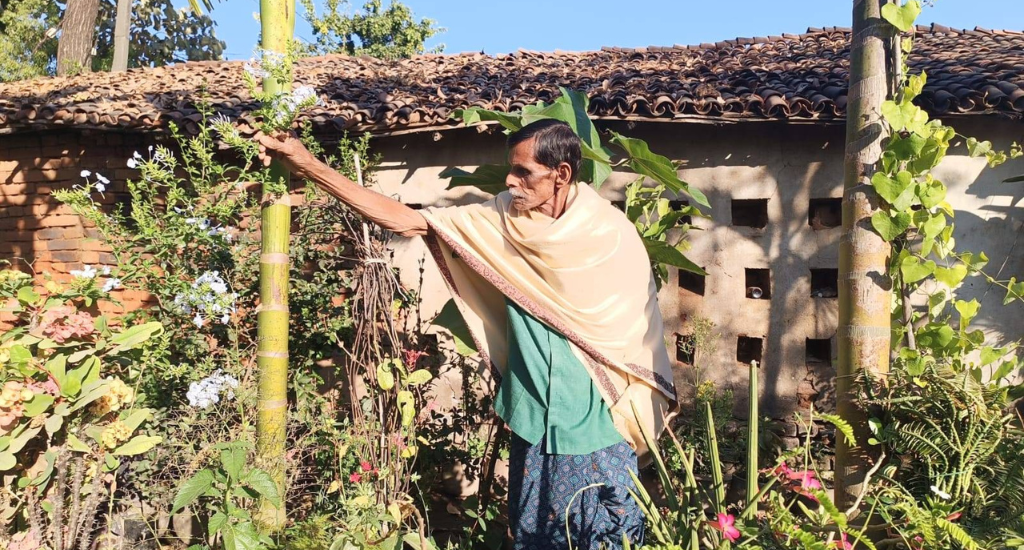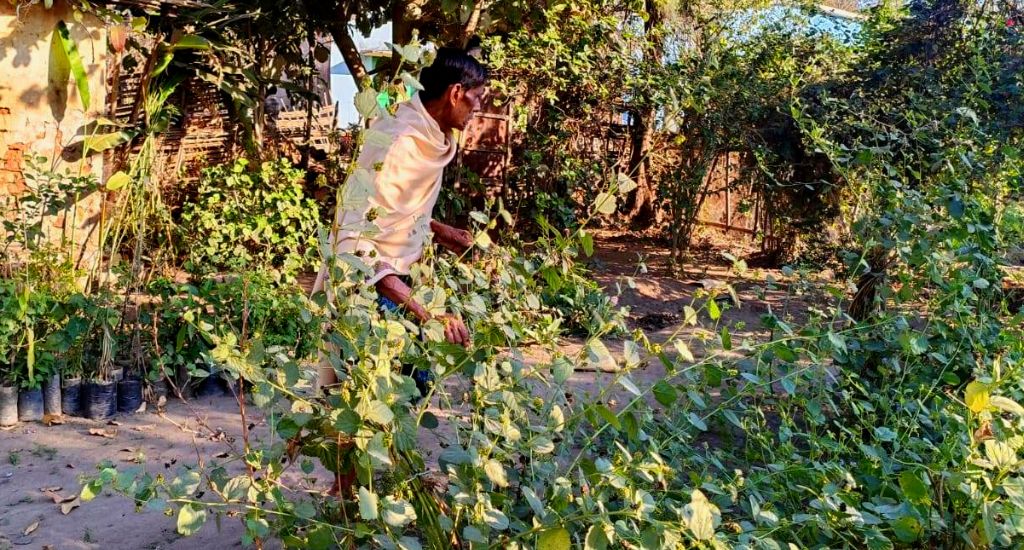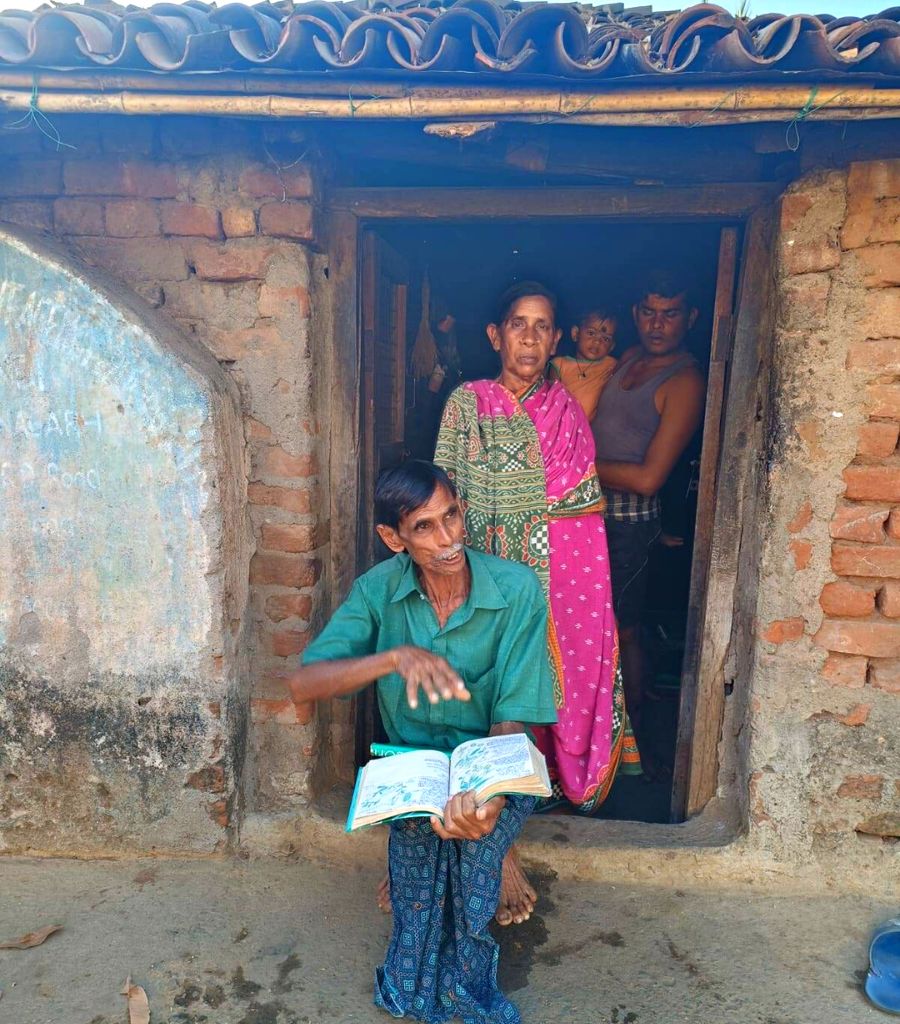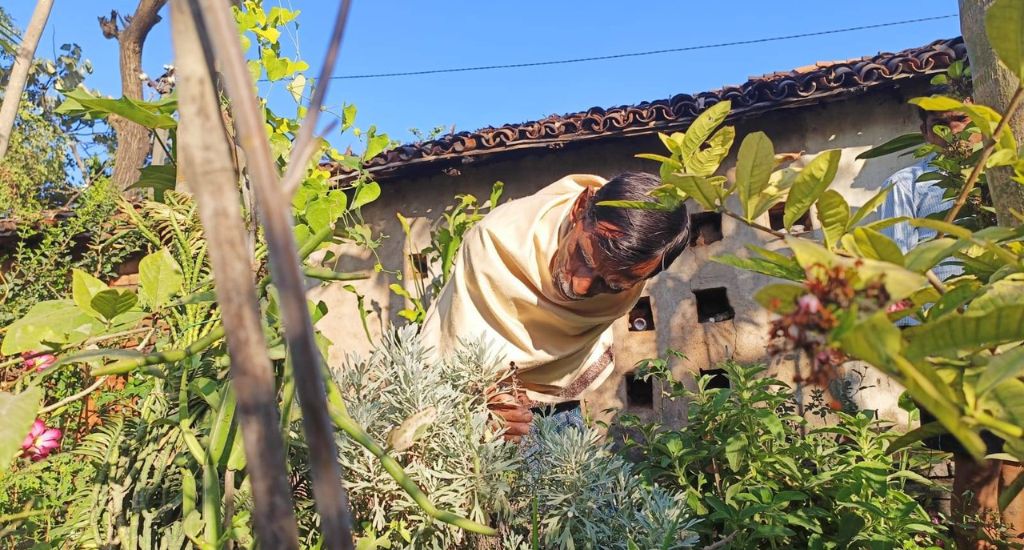
Patayat Sahu’s tale of plants, potions and Padma Shri
Country recognises 65-year-old villager of Nandol in Odisha for curating a garden with 3000 varieties of medicinal plants that help to cure many ailments.

Country recognises 65-year-old villager of Nandol in Odisha for curating a garden with 3000 varieties of medicinal plants that help to cure many ailments.
Nandol in Kalahandi district of Odisha has a lot to celebrate.
For long, the villagers have marveled at a medicinal garden spread over 1.5 acres behind the house of one Patayat Sahu. Boasting of a wide variety of plant species such as Kakharu, Maeda and Rasnajadi, the garden was a source of immense pride, providing a unique identity for the village.
Many from far and wide came, looking for cure for their ailments from Sahu, a traditional healer using herbs from his garden.
There is more to celebrate these days in Nandol.
Sahu has been awarded the coveted Padma Shri this year for his contribution in conserving medicinal plants and Nandol, together with the rest of Odisha, is in cloud nine.

Even the lean and frail 65-year-old Sahu is thrilled.
“Solutions to all your problems, including health, are within nature itself. And what could be better than being recognised for this simple message,” he said.
Mostly in a lungi with a local gamucha loosely draped across his shoulder, Sahu has nurtured and grown over 3000 different species of medicinal plants.
Also Read | Medicinal herb ushers prosperity for Sagar Island farmers
His love for them was triggered by his grandfather, who too was a traditional healer. Though his parents wanted him to study and have a regular job, Sahu preferred to spend hours with his grandfather after school and learn more about the plants.
“Back then, some 60 years ago, allopathic medicine wasn’t very popular. In our village, everybody had knowledge about these plants, their usage and properties. It was more of a hobby for me as a child. But when I grew up, I knew the medicinal plants were my life,” he recollected.
Immediately after completing his education, he started developing the garden behind his house with plant species his grandfather had. But his quest took him to dense remote jungles of not only Kalahandi, but across Odisha and to a few other states. Overtime, he brought back some 3000 different species to enrich his garden.

“I have visited many jungles within the state on my cycle. Every district in Odisha has traditional healers, and we would group together and undertake these journeys to various places in search of medicinal plants,” Sahu said.
All the while, Sahu’s reputation as a traditional healer grew.
“I prepare medicines from the plants I grow. I do not use any chemicals and the manure is prepared by me at home. So, all the plants are organic,” Sahu pointed out.
The queue of people seeking cure for cold, fever, headaches and skin ailments before his house only got longer. He never charged fees for treatment. Instead, he accepted what his patients voluntarily offered.
Also Read | Medicinal herbs can form a base for rural enterprises
His family has been supportive.
“What we earn is the blessings of people and that counts,” Sushant, Sahu’s younger son, confided.
Today, his garden has grown into a veritable treasure trove. Sahu’s garden boasts of a variety of plant species including Kakharu, Maeda, Sarpagandha, Sambarsingha, Rasnajadi, Tihudi, Bhin, Ashoka, Lodhra, Bidanga, and Shatavari. Besides, he has five varieties of Bhringraj, Pengu, Panikusuma, Rajapatha, Nagavel, Debanasan, Jaladimbiri and Jyotismati.

He has also grown all ten varieties of Dasamoola, which are prominently used in many Ayurveda medicines.
Apart from treating people, Sahu has also been distributing plants to his friends and other villagers. “The idea is not to keep the knowledge concentrated just with me. I want every villager to know about these plants and consume it when need be. Just like how we consume Tulsi when we catch a cold,” Sahu said.
Eager to preserve and propagate the knowledge of medical plants, Sahu has written two books. They are waiting to be published.
The books contain names, description, properties and usage of all species he has grown and is aware of.
“All these medicinal plants and herbs were readily available in our immediate vicinity, once upon a time. Now the times are different. Even the forests are vanishing and so are the various species. But it is important that this knowledge is documented and even disseminated,” Sahu explained.
Also Read | Cattle farmers revive traditional herbal remedies
The Padma award for him will certainly help his cause. Everyone now wants to know more about Sahu and his medicinal plants.
The lead image at the top shows Patayat Sahu on his farm which has 3000 different varieties and species of medicinal plants over 1.5 acres of land.
Aishwarya Mohanty is an independent journalist based in Odisha. She reports on the intersection of gender, social justice, rural issues and the environment. She is also a Rural Media Fellow powered by Youth Hub.